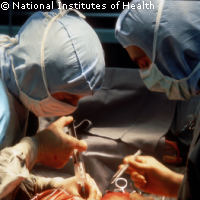Heart to heart: scientists create heart muscle cells from adult stem cells
In a world first, Dutch scientists have successfully taken stem cells from adult human hearts and used them to create new heart muscle cells. These cultured heart muscle cells will enable scientists to study heart defects and test new medicines, and could one day be used to repair heart tissue which has been damaged during a heart attack. The work, which was funded in part by the EU, is published in the journal Stem Cell Research. Mature heart muscle cells do not divide, so when some are lost as a result of a heart attack, they are not replaced with fresh heart muscle cells, but with scar tissue. There is therefore a lot of interest in techniques which could transplant heart muscle cells into damaged hearts. Until now, scientists have relied on human embryonic stem cells to create heart stem cells. However, this method is not very productive as many of the cells do not develop into muscle cells. Furthermore, isolating stem cells from embryos remains a controversial issue. For a long time, researchers thought that the adult heart contained no stem cells. However, recent studies have revealed the existence of a small pool of potential stem cells in the adult heart. In this latest study, the researchers succeeded in isolating some of these stem cells from the material left over from open heart surgery. The researchers cultured these cells in the laboratory and allowed them to develop. Almost all the cells developed spontaneously into mature heart muscle cells that contract rhythmically and respond to both electrical activity and adrenaline. 'We've got complete control of this process, and that's unique,' commented Professor Pieter Doevendans of the University Medical Centre in Utrecht, the Netherlands. 'We're able to make heart muscle cells in unprecedented quantities, and on top of it they're all the same. This is good news in terms of treatment, as well as for scientific research and testing of potentially new drugs.' Professor Doevendans and his team will use the cultured heart muscle cells to study conditions like cardiac arrhythmia (abnormal heart rhythms), and to test new drugs. Ultimately, they hope that new heart muscle cells could be used to repair the damage inflicted on the heart during a heart attack. EU support for the research came from the EU-funded SC&CR ('Application and process optimization of human stem cells for myocardium repair') project, which is financed through the 'Life sciences, genomics and biotechnology for health' Thematic Area of the Sixth Framework Programme (FP6) and the Heart Development and Heart Repair project.
Countries
Netherlands

